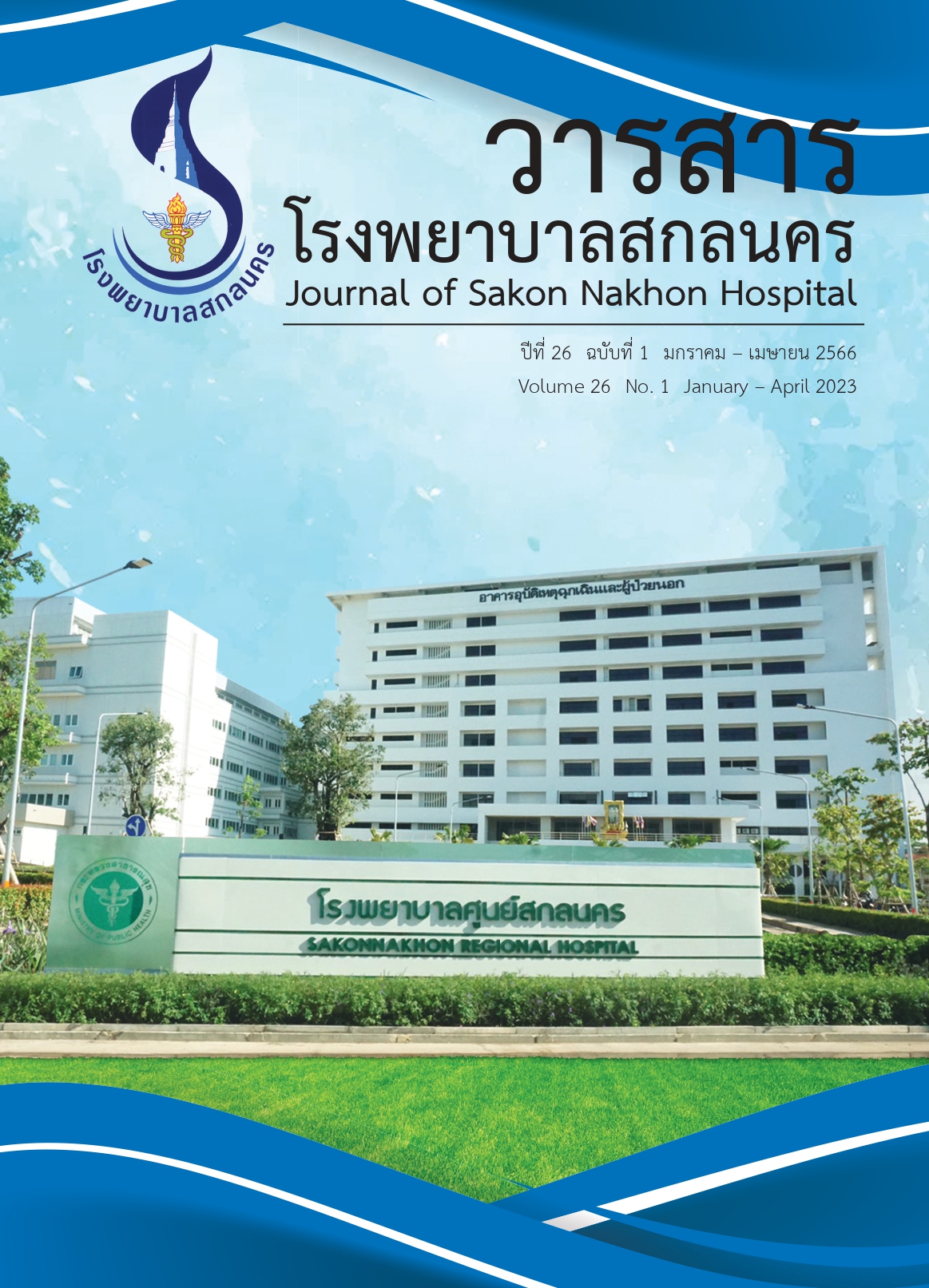Effectiveness of the Discharge Planning Model for Maternal Methamphetamine Abuse on Knowledge and Behavior in Postpartum Self–Care, Readmit and Relapse in a Tertiary Care Hospital
Abstract
This quasi–experimental research aimed to investigate the effectiveness of the discharge planning model for maternal methamphetamine abuse on knowledge and behavior in postpartum self–care, readmission within 28 days and relapse of methamphetamine abuse. The samples included 60 postpartum mothers with maternal methamphetamine abuse in labor in Sakon Nakhon hospital from October 2021 to September, 2022 They were divided into intervention and control groups, 30 samples per each group. The data were analyzed using the frequency, percentage, mean, standard deviation, t–test, and Chi–square test.
The results of the study revealed that 1) the mean knowledge score of postpartum self–care in the intervention group (x ̅ = 19.43, S.D. = 1.11) was significantly higher than that of control group (x ̅ = 17.17, S.D. = 1.63) (p < 0.001). 2) the mean behavior score of postpartum self–care in Intervention group (x ̅ = 3.76, S.D. = 0.94) and control group (x ̅ = 3.51, S.D. = 1.04) was at the high level. 3) there was no readmission within 28 days in the Intervention group while 1 case was found in the control group and 4) the relapse of methamphetamine abuse within 6 weeks postpartum in the Intervention group was 1 case while 7 case was found in the control group. The different was statistically significant (p < 0.05).
This study suggests that the discharge planning model should be adopted and studied in pregnant women with drug abuse of all kinds since pregnancy to provide proper knowledge and behavior in postpartum self–care. As a result, the impact on mother and newborn and the relapse of drug abuse could be reduced and they should receive treatment according to the Ministry of Public Health’s policy.
Keywords: Discharge planning model, Methamphetamine, Postpartum mother, Tertiary care hospital




